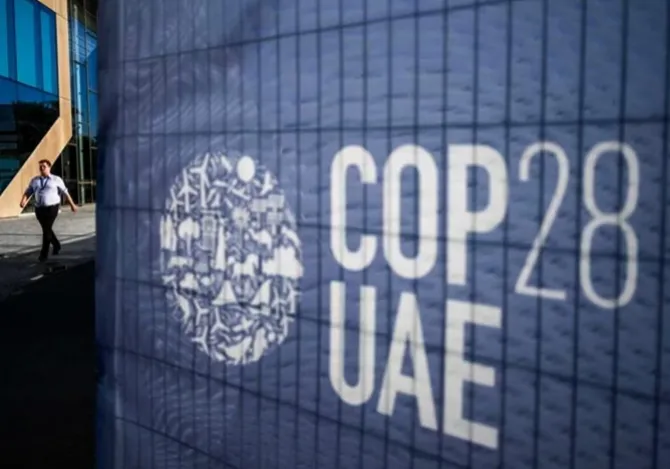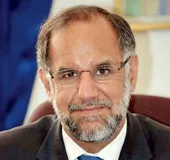There was no shortage of rhetorical fireworks as a diverse group of over 100 delegates from 61 countries met in Abu Dhabi on a pleasant Diwali morning on November 12 to press the demands of the Global South on climate change. The Delhi-based Observer Research Foundation had teamed up with UAE’s Emirates Policy Centre for a special conference to ensure that the recommendations on climate change that had been painstakingly crafted during India’s presidency of G20 get faithfully transmitted to CoP 28 which will be held in UAE from November 30 to December 12, 2023.
The Abu Dhabi conference focused on four key themes around climate action that have resonated during the course of the year and encapsulate the major concerns of the Global South:
1. Energy Prosperity for All
The global imperative of transition towards green and clean energy sources to enable our planet to stay within the 1.5 degree redline must be predicated on the principles of energy equity and justice. Energy transitions can’t be forced at the cost of the growth imperatives of developing nations. The Energy Transitions Working Group set up during the Indian presidency of G22 held four substantive meetings and came up with six distinct priority areas for ensuring equity in energy transition with the objective of healing our ‘One Earth’, creating harmony within our ‘One Family’, and giving hope for our ‘One Future.’
2. Climate and Technology
While the role of technological innovation in fighting climate change is widely recognized, there is much to be done for facilitating global technology transfer mechanisms, reforming intellectual property rights regimes and building technological capacity in developing nations. The G20 has endorsed the need for international cooperation, investment and policy frameworks to accelerate the adoption of climate-friendly technologies but it is now up to COP28 to create a more conducive environment for this to happen.
3. Climate Finance
The need for scaling up global climate finance so that developing nations can move towards a net-zero trajectory has been acknowledged since COP15 in Copenhagen in 2009 when developed countries committed to a collective goal of mobilizing USD 100 billion a year by 2020. Meanwhile, the needs for climate finance have grown exponentially and are estimated by G20 at a sum of USD 5.9 trillion till 2030. Even if the $100 billion were actually channelled to developing nations, it would be woefully inadequate. The Loss and Damage Fund announced in CoP 27 to help some of the poorest and most vulnerable countries is another important step but currently remains an empty bank account. And with climate mitigation getting 10 times more resources than adaptation, the mismatch in global priorities is glaring. Addressing these challenges requires public finance commitments to be supplemented by private and blended finance, along with a reform and enlargement of the international financial institutions (IFIs) and multilateral development banks (MDBs).
4. The Climate-Health-Gender Nexus
The G20 summit did well to recognize the disproportionate impact of climate change, biodiversity loss, desertification and pollution on women and recommending placing gender equality at the core of climate action. Changing climate patterns in the form of intense heat waves, air pollution and emerging disease patterns have dire health consequences and must be factored into national climate plans.
A Pathway from G20 to COP28
The presence of Dr. Sultan al Jaber, President-designate of COP28 at the Abu Dhabi conference sent the reassuring message that the voice of delegates ranging from Armenia to Argentina, from Mozambique to Morocco and from Zambia to Zimbabwe was being heard at the highest level. Al Jaber emphasized that COP28 would frame climate action as an opportunity for growth and called for a transformation of the climate finance framework to ensure a fair and inclusive global energy transition. Echoing the legitimate demands of the Global South, he said, “Unmet promises like the $100 billion pledge must be fulfilled. The green climate fund must be fully replenished. Adaptation finance must be doubled. And the fund for loss and damage must be fully operationalized at COP28….IFIs and MDBs urgently need to reframe their mandates to meet growing climate needs.” His call that “the clean technologies that are taking off in the north must be available, accessible and affordable across the Global South” provided a clear sense of reassurance to the delegates.
Al Jaber also applauded the energy transition vision pursued by India through the course of its presidency of G20 and praised Prime Minister Narendra Modi for delivering an agreement where countries representing 85 % of the global economy have agreed to CoP28’s goal of tripling renewable energy capacity and doubling energy efficiency by 2030. His COP presidency, he promised, would emulate the approach of cooperation and multilateralism that India had demonstrated during its G20 presidency.
India’s focus on delivering tangible outcomes from its presidency was visible in the first ever Voice of the Global South virtual summit organised on 12-13 January 2023 with the participation of 125 countries and in the follow-up virtual summit held on 17 November. The same tenacity can be seen in the G20 virtual summit on 22 November. From the Abu Dhabi conference, the urgent Call for Action should resonate loud and clear throughout COP28 in and create a dynamic and durable pathway from G20 to COP28.
This commentary originally appeared in Hindustan Times.
The views expressed above belong to the author(s). ORF research and analyses now available on Telegram! Click here to access our curated content — blogs, longforms and interviews.




 PREV
PREV


